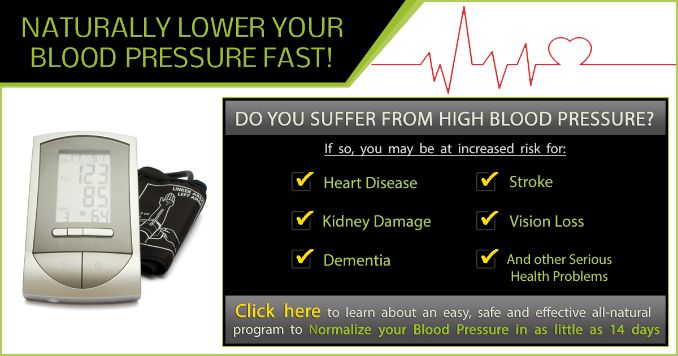These days, most people understand the negative impact that high blood pressure can have on their health. High blood pressure is the main risk factor for a cardiovascular event (heart attack or stroke) as it damages arteries that can become blocked and prevent blood flow to the heart muscle. Normal blood pressure is considered 120/80, but what does this mean? Simply stated, the systolic blood pressure (top number) refers to how hard the heart works to push the blood out of the heart. The diastolic (bottom number) refers to how hard the blood vessels are pushing the blood towards the heart.
High blood pressure is generally diagnosed by a physician after receiving 3 consecutive elevated blood pressure readings. Most people initially diagnosed with high blood pressure are in Stage 1 or pre-hypertension.
Pre-Hypertension Systolic Blood Pressure: 120 – 139
Pre-Hypertension Diastolic Blood Pressure: 80 – 89
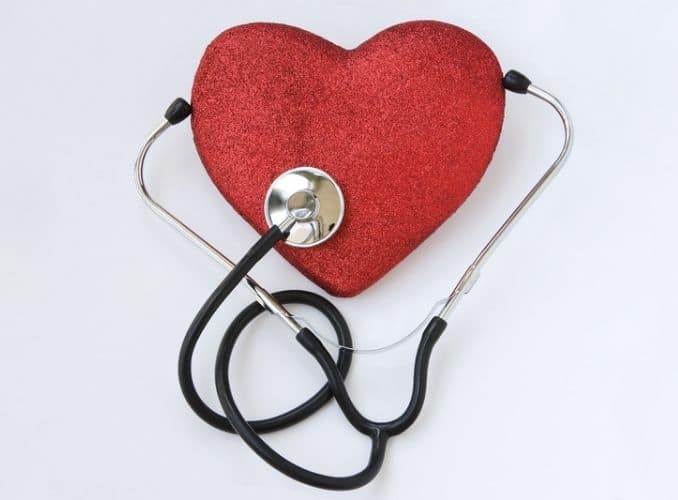
There is a multitude of factors that can contribute to developing high blood pressure. While some of these factors are beyond your control, others can be managed through better lifestyle choices. Risk factors for high blood pressure include:
- Age – Your risk of developing high blood pressure increases with age
- Race – High blood pressure is more common in those of African heritage
- Genetics – A family history of high blood pressure increases your risk
- Chronic Conditions – Including renal dysfunction and diabetes
- Hormonal Changes – Sometimes pregnancy can lead to high blood pressure
- Lifestyle Choices – Including diet, exercise, weight, smoking, alcohol consumption, and stress
While factors like age, race, and genetics are beyond your control, pre-hypertension can most often be managed with basic lifestyle changes. Taking an active role in maintaining good health is the best way to reduce your risk of developing high blood pressure and suffering the devastating consequences of a cardiovascular event.
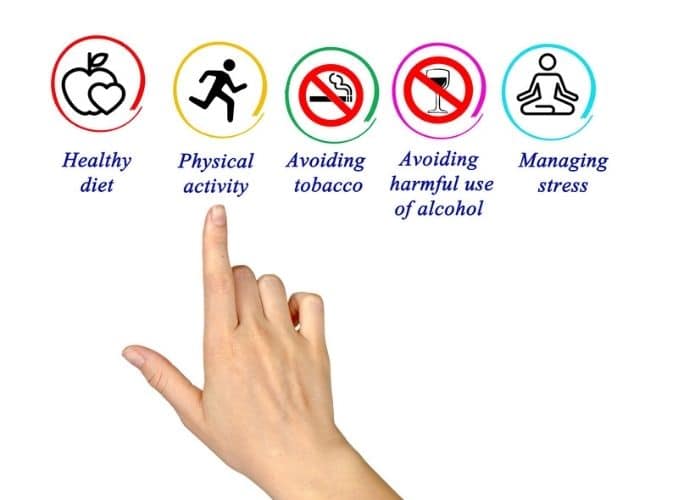 What Can You Do?
What Can You Do?
1. Exercise
Regular exercise is the single number one determining factor of good health. Many people mistakenly believe that only vigorous, difficult exercise can help lower your blood pressure and contribute to healthy living. This simply isn’t true. Research has shown that even moderate aerobic exercise for a minimum of 20 minutes, 3 days a week can have a positive effect on lowering your blood pressure. So, take a walk, go for that swim, or ride your bike. Your heart will thank you for it! Even better, regular exercise can help you maintain a healthy weight.
 2. Diet
2. Diet
Diet and nutrition play an important role in your overall health and can also have a tremendous impact on maintaining healthy blood pressure. Often a specific diet plan will be recommended for those with pre-hypertension or high blood pressure. Most commonly, doctors will recommend:
DASH Diet
The DASH Diet (Dietary Approaches to Stop Hypertension) is rich in fruit and vegetables, whole grains, healthy proteins, and fiber. It also includes high amounts of calcium, potassium, and magnesium, which are all nutrients that help lower blood pressure.
Low Sodium Diet
A slow sodium diet has many health benefits but is especially helpful for lowering blood pressure and reducing your risk of a heart attack or stroke. One of the easiest ways to decrease your sodium intake is to limit the number of processed foods you consume.
Combination of DASH and Low Sodium Diet
Studies have shown that a combination of the DASH Diet and lowering your sodium intake has the best results for lowering blood pressure.
In addition to promoting healthy skin, hair, and brain function, Omega 3 Fatty Acids have also been shown to help reduce blood pressure. You may need to consume higher levels of Omega 3 to have a
therapeutic impact, so read labels closely and consult with your physician for their recommendations. Also, note that Omega 3 can have a blood-thinning effect, so those with any bleeding or clotting disorders should be especially cautious.
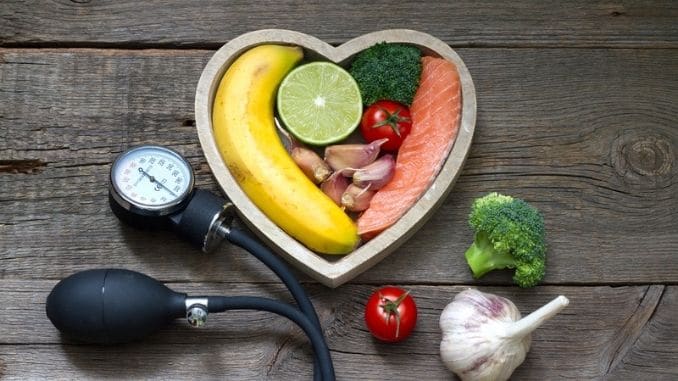 3. Smoking
3. Smoking
If you currently smoke, it is time to quit! Not only does smoking increase your blood pressure temporarily, the chemicals found in tobacco can also damage the lining of your artery walls. This in turn increases your risk of heart disease. There are countless smoking cessation programs and therapies currently available, including nicotine replacements, medications, hypnosis, psychotherapy, and more. Quitting smoking also has other health benefits aside from lowering your blood pressure, so there is no better time to quit.
4. Alcohol Consumption
Over time, heavy drinking can increase your chance of developing heart disease. Drinking more than 3 drinks in one sitting can temporarily raise your blood pressure, but long-term binge drinking can lead to chronic blood pressure concerns.
 5. Stress
5. Stress
When you’re in a stressful situation, your body produces a surge of hormones that temporarily increase your blood pressure by making your heart beat faster and your blood vessels narrow. In addition, stress-related coping mechanisms like over-eating, drinking alcohol, or smoking (as mentioned above) can further contribute to blood pressure increases.

The ability to manage your blood pressure with lifestyle changes is good news for anyone with pre-hypertension because many blood pressure medications can have annoying side effects. Blood pressure is only one risk factor for cardiovascular events, so before developing a treatment plan, most doctors will want to better determine your total risk level. To do so, they will often use the Framingham Risk Score Calculator. The Framingham system considers a number of different factors, including age, gender, race, blood pressure, and cholesterol levels to calculate your risk of experiencing a cardiovascular event over the next 10 years. Remember that you have a say in your medical treatment plan, so it is important to understand your risks and can weigh the pros and cons of different drug treatment therapies. You need to understand the potential good that medication might have against any adverse side effects.
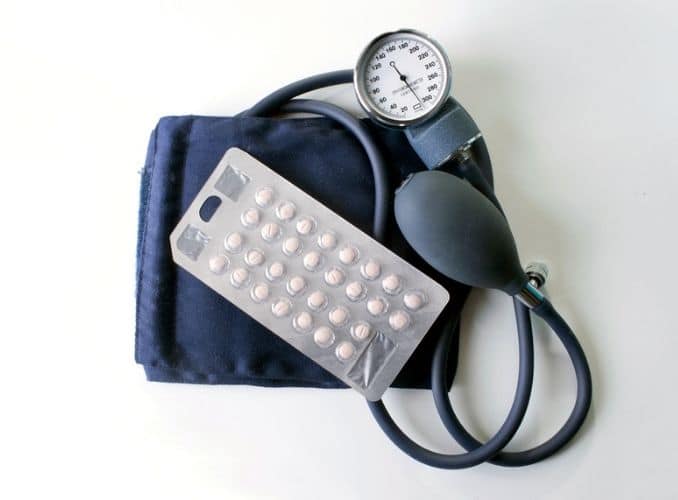
By no means should the information shared in this article replace the care of a physician. High blood pressure is a serious health issue, so you should always consult with your doctor if you have concerns or feel you may be at risk. Many people with high blood pressure do not have any noticeable symptoms, so the best course of action is to live a healthy lifestyle and have your blood pressure regularly tested during routine exams.
Learn the best way to naturally and safely lower your blood pressure. Click here for more information.


